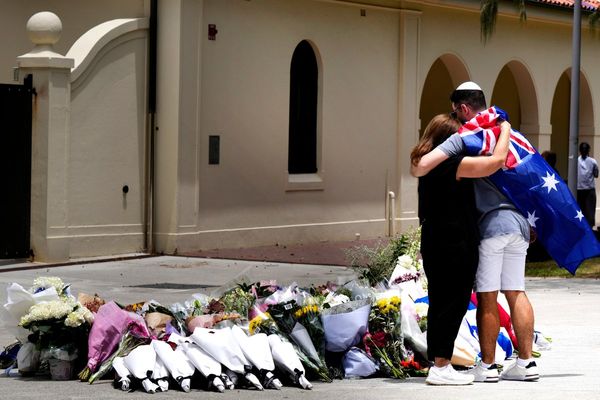Scotland Yard is already sharing a suspect’s nationality with the public in high-profile cases as landmark new guidelines are set to be adopted nationwide.
Forces are under mounting pressure over the details they disclose after authorities were accused of covering up offences carried out by asylum seekers.
The National Police Chiefs’ Council and College of Policing interim guidance says chief constables should consider release extra information about the ethnicity and nationality of those charged in particularly sensitive investigations when it could reduce the risk of disorder.
But decisions will remain with each force themselves, the NPCC said.
It is hoped the change could combat high levels of false information about an incident spread on social media.
In May, Metropolitan Police Commissioner Sir Mark Rowley said it is right to release the ethnicity of suspects - even if the information might “embolden racists”.
Last month, the Met said a British citizen had been arrested on suspicion of murdering Terry McMillan, 58, and his son Brendan McMillan, 27, at a business premises in central London.
Hassan Cevik, 31, of Mount Pleasant Lane, Hackney, will appear at the Old Bailey on Wednesday charged with two counts of murder, grievous bodily harm relating to a 47-year-old man and possession of an offensive weapon.

The latest row comes as Afghan asylum seekers Ahmad Mulakhil and Mohammad Kabir, both 23, were charged over the alleged rape of a schoolgirl in Nuneaton.
Sources said their ethnicity had been kept from the public to avoid “inflaming community tensions”.
The Warwickshire force denied a “cover up” after being criticised by Reform UK.
Merseyside Police was criticised for not revealing more about Axel Rudakubana when he was arrested on suspicion of murder after attacking a Taylor Swift-themed dance class in Southport last July.
Within hours of the attack, posts spread on the internet claiming the suspect was a 17-year-old asylum seeker who had come to the country by boat last year.
In the first press conference after the event, at 6.30pm that day, Merseyside Police Chief Constable Serena Kennedy told journalists the suspect was originally from Cardiff.
But the police statement did little to quell the misinformation spreading online, and riots began across the country the next day.
In a separate incident, to suppress rumours that a car that had ploughed into a crowd of people during Liverpool’s Premier League victory parade in May was a terror attack, the force promptly revealed the ethnicity and nationality of a man they had arrested, who was white and British.
Deputy Chief Constable Sam de Reya, the NPCC lead for communications and media, said: “We saw during last summer’s disorder, as well as in several recent high-profile cases, what the major, real-world consequences can be from what information police release into the public domain.
“We have to make sure our processes are fit for purpose in an age of social media speculation and where information can travel incredibly quickly across a wide range of channels.
“Disinformation and incorrect narratives can take hold in a vacuum. It is good police work for us to fill this vacuum with the facts about issues of wider public interest.”
There is nothing that bars police from sharing information about the nationality, asylum status or ethnicity of someone who has been charged with an offence in the College of Policing’s existing guidance on media relations.
Emily Spurrell, of the Association of Police and Crime Commissioners, said: “I am pleased the NPCC and College of Policing have recognised the need to update guidance for forces in the light of recent high-profile cases.
“PCCs and Deputy Mayors act on behalf of the public and it is clear there was a need to review the guidance to address growing public concern.
“We have seen the speed with which mis- or disinformation can spread online and the danger to public safety that can cause, so it is right police keep the public informed as far as is possible whilst preserving a suspect’s right to a fair trial.”







